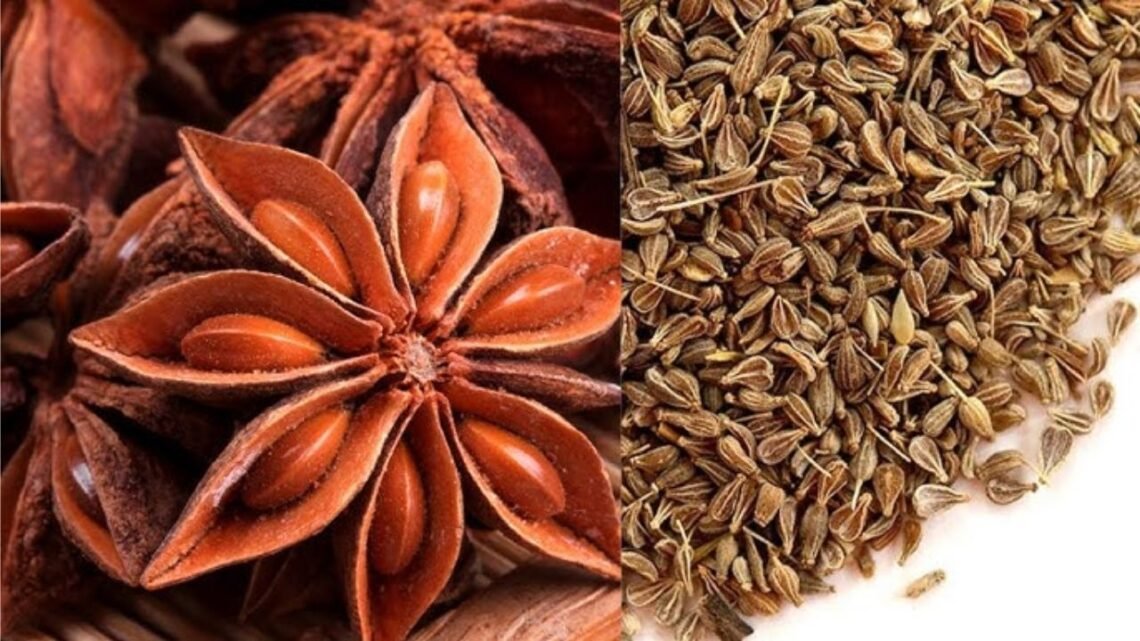Old-style medication has been in use since way back: natural spices and herbal medicines. Anise (aniseed) is one of these spices that may be discussed due to the very broad list of beneficial capabilities it has. Having a unique flavor and smell like licorice, anise has its niche not only in the kitchen but also in natural medicine. Most individuals seek information on anise benefits, aniseed health benefits or even questions like “is anise bad for your blood weight?” or check on anise tea health benefits and star anise health benefits in females.
Here is a complete guide to help you understand all there is to know about anise, its nutritional aspects, its uses in medicine, its health risks and how consuming anise can improve health when consumed in moderation.
What is Anise (Aniseed)?
Anise (Pimpinella anisum) belongs to a plant that derives from the Mediterranean region and parts of Southwestern Asia. It is from the small brown seeds (aniseed) of the plants that the plant is cultivated. The seeds have the natural oils in them as well as the antioxidants and good compounds, which make them beneficial in medicine.
People tend to confuse anise with star anise. Star anise is a completely different spice, from China and looking like stars. However, both contain an identical compound called anethole, which results in their sweet licorice flavor and plenty of health benefits.
Anise Benefits You Can’t Ignore for a Healthier Lifestyle
Anise has been valued for centuries in Ayurveda, Chinese medicine, and Western herbal traditions. Here are some of the most notable anise benefits:
- Digestive Support: Anise is also popular at getting rid of indigestion and bloating and gas. It can assist in the stimulation of digestive enzymes and alleviate digestive pain post large meals.
- Respiratory Relief: conditions traditionally, anise has been an expectorant that has been used in the treatment of cough, asthma and bronchitis.
- Antioxidants: Anise is rich in flavonoids and polyphenols, which have the capability to prevent the impact of oxidative stress and lower the risk of developing chronic diseases.
- Anti-Inflammatory Benefits: Anise is known to reduce inflammation thus promoting joint and heart health, which could be achieved with regular consumption of anise.
- Immune System Boost: It has antimicrobial properties that aid in the combating of bad bacteria, viruses, and fungi.
Aniseed Health Benefits
When we talk about aniseed health benefits, it’s important to highlight that the seeds are nutrient-dense and offer therapeutic potential.
- Nutritious: Calcium, magnesium, iron, zinc and fiber are also present in aniseed, which is very important in ensuring proper health.
- Hormonal Balance: The phytoestrogen content of aniseed could help women going through hormonal imbalances, particularly during the menstruation or menopause periods.
- Enhances Sleep: The aniseed has a mild sedative effect, which may improve the quality of sleep.
- Helps Oral Health: Aniseed has natural antiseptic properties and this makes it a good natural breath freshener.
- Blood Sugar Control: There is even some research that aniseed can be used to improve insulin sensitivity and stabilize blood sugar levels.
Does Anise Raise Blood Pressure?
One of the most common questions people ask is, “Does anise raise blood pressure?”
- The Answer: Anise generally does not raise blood pressure. In fact, due to its anti-inflammatory and antioxidant properties, it may support cardiovascular health. However, excessive consumption could interact with certain medications, particularly blood pressure drugs.
- For Hypertension Patients: Moderate use of anise tea or spice in food is considered safe, but individuals with high blood pressure should consult their doctor before using concentrated supplements.
- Important Note: If you are on blood-thinning medications, you should avoid very high doses of anise as it might increase bleeding risk.
So, in summary, anise does not raise blood pressure under normal circumstances and may actually support heart health when consumed wisely.
Anise Tea Benefits: A Healing Drink for Everyday Wellness
Anise tea is one of the widely used methods of consumption. The advantages of using anise tea are amazing, as it is a refreshing drink, which is therapeutic.
- Boosts Digestion: Since it tastes good when served warm as anise tea, consumption at the end of a meal will help avoid bloating, indigestion, and flatulence.
- Cough and Cold: Anise tea is an expectorant, thus loosening up the mucus as well as soothing sore throats.
- Calming Effect: Anise tea has a sedative effect wherein it minimizes worry and helps in getting a good sleep.
- Enhances Women Health: Anise tea is frequently suggested for reducing menstrual cramps and hormonal imbalance in a natural way.
- Increases Immunity: Anise tea is rich in antioxidants that enhance the body immune system to infections.
To make anise tea: Simply boil 1 teaspoon of crushed anise seeds in hot water for 10 minutes, strain, and enjoy.
Star Anise Benefits for Female Health
When it comes to star anise benefits for female health, this spice has unique advantages due to its high phytoestrogen and antioxidant content.
- Menstrual Health: Star anise reduces menstrual cramps and balances irregular periods.
- Menopause Support: It is also found that star anise tea can help women with hot flashes, mood swings, and the stressful time of menopause.
- Breast Milk Production Time: honored star anise has long been taken to boost lactation among nursing mommies.
- Skin and Hair Health: Its antioxidants enhance the elasticity of the skin and ensure they are anti-aging. It can also foster growth of hair and decrease dandruff.
- Weight Management: Anise tea has the capacity to enhance metabolism, which enhances weight management.
Nutritional Value of Anise (Per 100 grams)
Here is a quick breakdown of the nutritional value of anise seeds:
| Nutrient | Amount (per 100g) | Health Benefit |
| Calories | 337 kcal | Provides energy |
| Protein | 18 g | Supports muscle growth |
| Carbohydrates | 50 g | Energy source |
| Fiber | 15 g | Aids digestion |
| Fat | 16 g | Healthy fats |
| Calcium | 646 mg | Bone health |
| Iron | 36.96 mg | Prevents anemia |
| Magnesium | 170 mg | Relaxes muscles |
| Vitamin C | 21 mg | Immunity boost |
| Potassium | 1441 mg | Heart health |
Precautions and Side Effects
While anise benefits are plentiful, excessive consumption can cause certain side effects:
- May trigger allergic reactions in people sensitive to fennel, celery, or parsley.
- High doses may interfere with blood-thinning and blood pressure medications.
- Pregnant women should consume it only under medical supervision.
- Overuse of concentrated anise oil can lead to nausea and seizures.
Conclusion
Star anise, anise and aniseed are not harmless spices and flavors with a pleasing taste: they are effective natural drugs with a myriad of health advantages. The anise benefits cannot be undermined by aiding in digestion, respiratory health, and even being helpful to address the needs of women who want to stabilize their hormone levels.
Not to mention a popular question: does anise increase blood pressure? No, this is typically not the case and is actually cardiovascular health-promoting. Anise tea is helpful for digestion, sleep and strengthening the immune system, whereas some of the star anise health benefits for women are women’s health during menstruation, menopause and rejuvenation.
So by adding this aromatic spice into your diet, you get to enjoy the good taste and the therapeutic aspect of the spice naturally.
Also Read About: Allspice: A Powerful Healing Spice You Should Be Using Daily





